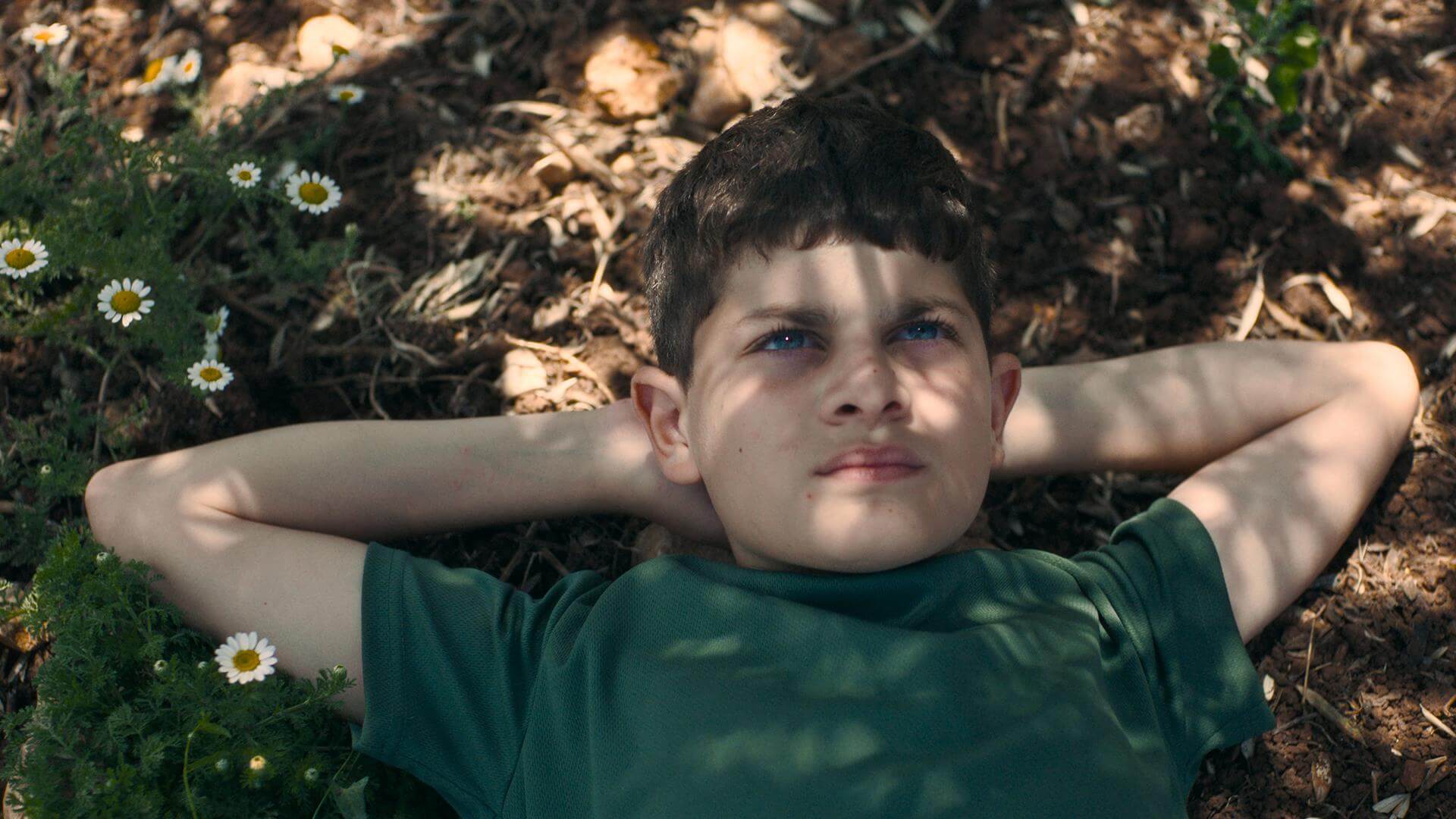Israel’s Oscar entry is, once again, about Palestinians
Shai Carmeli-Pollak’s ‘The Sea’ swept the Ophirs and irked Israel’s Ministry of Culture

Muhammad Gazawi as Khaled in Shai Carmeli-Pollak’s The Sea. Courtesy of Other Israel Film Festival
The distance between the Mediterranean Sea and Ramallah is about 40 linear miles. For a Palestinian in the West Bank to get there is anything but straightforward.
In Shai Carmeli-Pollak’s film The Sea, 12-year-old Khaled (Muhammad Gazawi) is going on a school trip to the beach. His hurried morning, typical of an adolescent, begins with his grandmother insisting he eat breakfast and his younger brother begging to tag along when his friends arrive. On the coach bus, kids are on their feet, teasing, flirting, tossing inflatable balls to dance music.
And then they reach the checkpoint.
The bus quiets, a soldier with a machine gun steps on. Khaled doesn’t have a permit. He can’t join his classmates; a relative collects him and brings him home.
From here, Carmeli-Pollak, whose film swept the Ophirs and in so doing caused Israel’s culture minister to threaten to defund the awards (known as the Israeli Oscars), is a study of the humiliations heaped on Palestinians under occupation in the West Bank. Clashes with the Israel Defense Forces are so commonplace that Khaled’s relatives laugh at video of his uncle choking on a smoke grenade.
Khaled is determined to get to the sea, sneaking into Israel by nightfall through a tunnel with laborers who don’t have permits. His single father, Ribni (Khalifa Natour), also working without a permit on a construction project, leaves to find him. One of his colleagues offers him a kippah — “I wear one when I go out, so they think I’m Jewish,” he says.
The film is Israel’s official entry for the 2026 Oscars, but Israelis play bit parts. The Jewish ones are managers, police, soldiers (including one guy strapped up with a massive rifle and a backpack pin that says “vegan”).
Khaled is particularly vulnerable among them, not knowing any Hebrew. His father doesn’t alert the authorities in Ramallah of his son’s disappearance, knowing they’ll contact their Israeli counterparts. Relying on the kindness of strangers — mostly Israeli Arabs — Khaled is able to take the bus and find his way from Bnei Brak to Tel Aviv.
I won’t ruin how Khaled’s journey ends, except to say it’s not quite the beach scene at the end of The 400 Blows.
It’s hard to watch this film and not recall the September letter signed by filmmakers vowing to boycott “Israeli film institutions,” and how this work may fit into their calculus. Unequivocally critical of the occupation, it is nonetheless made, as most every film in Israel is, with the support of the Israeli Film Council. That the minister of culture now objects to the film’s win doesn’t take away its stamp on the opening credits.
The fact that The Sea was made with a joint crew of Israelis and Palestinians may do little to satisfy some. No Other Land, last year’s Oscar winner for documentary, was denounced by the BDS movement for “normalization.”
While I have yet to hear rumors of a boycott for Carmeli-Pollak’s film, festivals, most notably the International Documentary Festival in Amsterdam, have barred state-backed Israeli films from its slate. In doing so, it risks silencing the voices of many of Israel’s strongest critics, who castigate their country from within.
The Sea is the kind of film that might show why the boycott tactic is shortsighted and, in the end, detrimental to the Palestinian cause. The drama deserves to be seen even as we, as ever, need more Palestinian stories from Palestinian writer-directors. In this story, made to move Israelis — and those not already aware of what the occupation entails — the Israeli perspective allows not just for access and resources, but an insight into how Jewish citizens react, or fail to act, in the face of injustice.
At one moment toward the end of the film, an Israeli policeman make a humiliating arrest of two Palestinians. People at a nearby cafe observe and, after a beat, a waitress arrives with someone’s hot cappuccino, and the patrons resume their day.
Carmeli-Pollack has no doubt lived this moment, watching his countrypeople carry on. Many in Ramallah never got past the separation wall to witness it.
Shai Carmeli-Pollak’s The Sea debuts at the Other Israel Film Festival in New York City on Nov. 6. Tickets and more information can be found at Other Israel’s website.

















